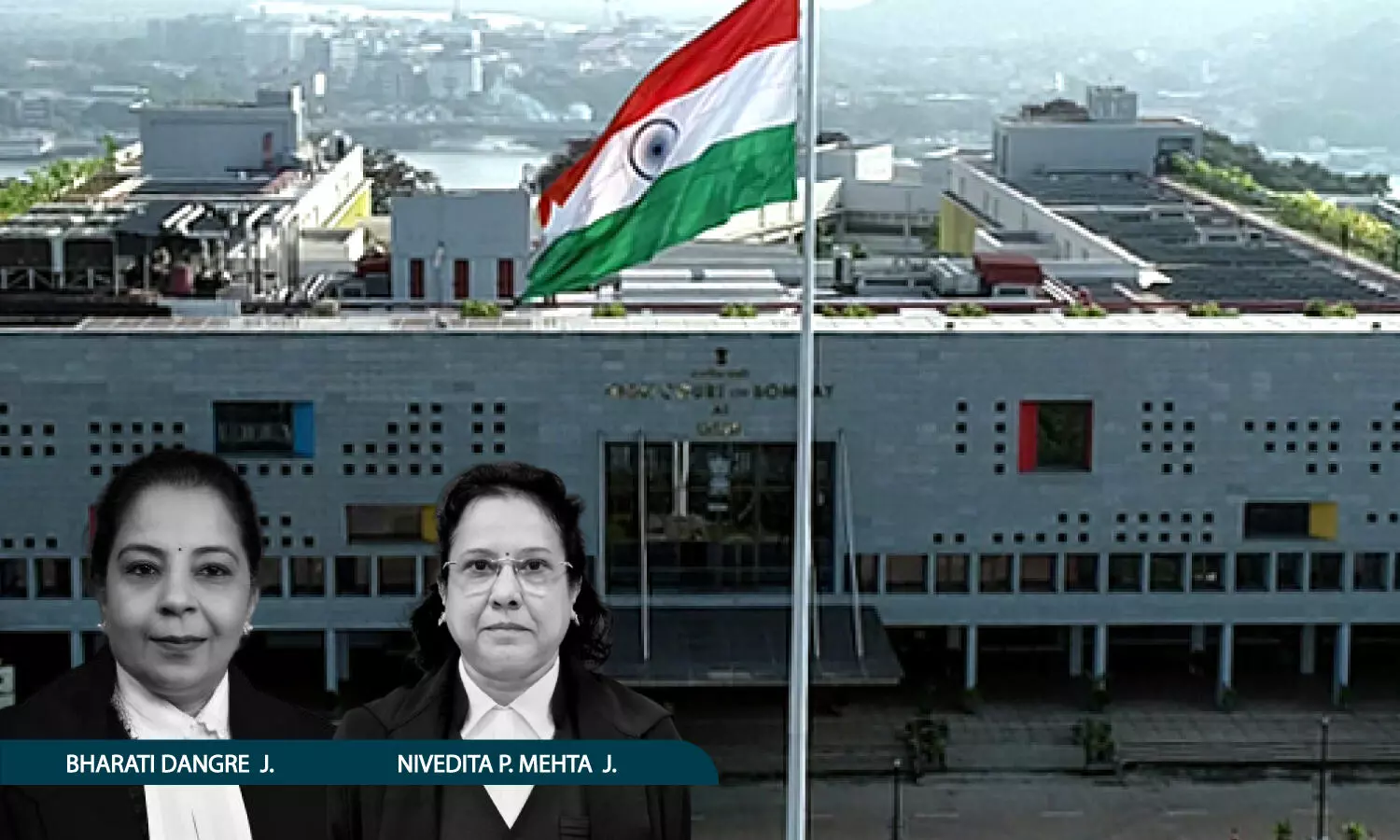
Justice Bharati Dangre, Justice Nivedita P. Mehta, Bombay High Court, Goa
Adequate Infrastructure For Support Staff In Courts Essential For Delivery Of Justice: Bombay High Court
 |
|The High Court directed Government to provide air conditioning facilities within six months, holding that the denial of such facilities to court employees amounted to discrimination and adversely impacted the administration of justice.
The Bombay High Court has observed that the effective functioning of courts depends on the availability of adequate infrastructure and proper facilities for support staff, who constitute the backbone of the judicial system, and directed the State Government to provide air conditioning facilities in workplaces of judicial as well as non-judicial staff.
The Court was hearing a writ petition filed by the North Goa (Non-Gazetted) Judicial Court Employees Association, representing 452 members working in various capacities in the new District and Sessions Court and Subordinate Courts complex at Merces.
The Division Bench comprising Justice Bharati Dangre and Justice Nivedita P. Mehta made strong observations emphasising the importance of support staff in judicial functioning:
“We are of the considered view that for proper and effective functioning of the Courts, it is necessary to have the support of the staff, which constitutes the backbone of the Courts’ functioning and discharging its solemn obligation of dispensation of justice. This staff is also entitled for an appropriate working environment, so as to increase their efficiency and output, which ultimately benefits the administration of justice itself.”
Mr Jatin Ramaiya represented the petitioners, while Mr Devidas Pangam, Advocate General represented the respondents.
Background
The petitioner association sought a writ of mandamus directing the State to provide adequate air conditioning in its workspaces. It was contended that while judges, advocates, public prosecutors, VIP lounges, and bar rooms had been equipped with air-conditioned facilities, staff members, who are integral to the court’s functioning, were excluded, which amounted to arbitrary discrimination.
The petitioners highlighted that repeated representations were made to the authorities, including a request to the Principal District and Sessions Judge, seeking air conditioning facilities for staff offices. The Judge had even written to the Goa State Infrastructure Development Corporation (GSIDC), suggesting the procurement of an additional transformer to bear the load of tower AC units. However, GSIDC rejected the proposal, citing feasibility issues and technical constraints.
The State Government, through its Law Department, also filed an affidavit stating that the request was considered but ultimately rejected due to financial constraints. The GSIDC, in its affidavit, presented detailed cost assessments, estimating that upgrading the power infrastructure and installing air conditioning would cost more, apart from higher recurring electricity bills.
It was further argued that installing centralised air conditioning would require dismantling false ceilings, smoke detectors, speakers, and other fixtures, potentially voiding the defect liability period under the construction contract. Additionally, GSIDC claimed that providing tower AC units was also infeasible due to space constraints, safety concerns, and accessibility issues for differently-abled persons.
The petitioners countered that such denial amounted to discriminatory treatment, especially since similarly situated stakeholders within the same premises had been granted the facilities denied to them.
Court’s observations
Rejecting the State’s stand, the Court held that the petitioners form an integral part of the justice delivery system and cannot be treated differently from other stakeholders occupying the same premises.
The Bench emphasised that Article 14 of the Constitution, which guarantees equality before the law, requires equal treatment of all classes contributing to court functioning. Denying facilities to court staff while extending them to judges, advocates, and prosecutors violated the principle of parity. Asserting that the support staff was entitled to equal treatment, the bench remarked:
“Equality before law, the lifeline of the Indian Constitution, conveys that every individual regardless of his or her background or status is subject to the same laws and legal procedures. Denial of air conditioning facilities only to the members of the petitioners’ Association, when similar facilities are extended to other stakeholders within the same premises, creates a perception of discrimination which cannot be sustained.”
The Bench further referred to the Supreme Court’s rulings in All India Judges Association v. Union of India and Brij Mohan Lal v. Union of India, reiterating that financial constraints cannot be cited as a ground to avoid the State’s constitutional obligation to ensure adequate judicial infrastructure.
“We direct the State to treat the members of the petitioners’ Association with parity and extend the benefits to them, as a healthy work environment is bound to increase the efficiency of employees and strengthen the justice delivery system,” the Court held.
Conclusion
Allowing the writ petition, the High Court directed the State Government to provide air conditioning facilities in all workplaces occupied by judicial and non-judicial staff within the Merces court complex by February 2026.
The Bench clarified that if augmenting the existing power infrastructure is required, the State must undertake the necessary expenditure to ensure a uniform and conducive working environment for all court personnel.
Cause Title: The North Goa (Non-Gazetted) Judicial Court Employees Association & Anr. v. State of Goa & Ors. (Neutral Citation: 2025:BHC-GOA:1591-DB)
Appearances:
For Petitioners: Mr. Jatin Ramaiya, Mr. Omkar Thakur, Mr. Omkar Parab
For Respondents: Mr. Devidas Pangam, Advocate General, with Ms. Maria Correia, Additional Government Advocate